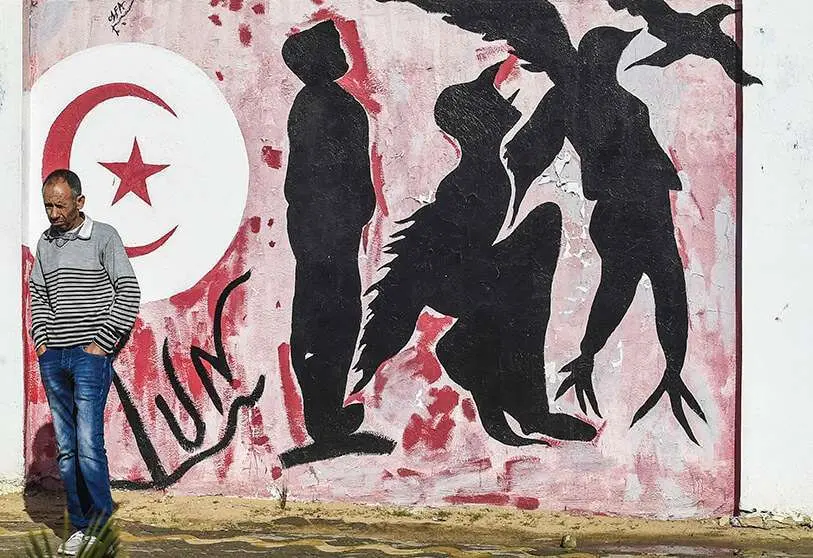Tunisia: Jasmine fragrances

17 December 2010, Mohamed Bouazizi settles in Sidi Bouzid. A gesture of desperation that will become the symbol of an entire people and provoke an insurrection that was thought to be temporary. However, Bouazizi's act has not only changed the history of Tunisia, but the entire history of the Middle East, giving rise to Arab revolutions with their share of benefits and misdeeds. If the demands were initially social in Tunisia and the revolt was horizontal, it quickly became political, reaching the highest echelons of the state to the point of ousting President Ben Ali from his throne. The end of a reign that lasted 24 years and of all the countries that went with it.
What is the current situation in Tunisia, and has the revolution borne fruit? The balance is mixed. A decade later, Tunisians' demands are the same, to the extent that corruption and large-scale clientelism have not ceased. The economic situation is sinking and there are countless candidates for Europe.
While the Ben Ali-era economy was two-headed and only benefited the powerful, the various governments that have succeeded each other since then have done no better and none have tackled the structural problems. Economic stagnation and social unrest have continued to grow, with unemployment at 30 per cent, accentuated by the COVID crisis. Tunisia is going through a serious political and economic crisis. As if that were not enough, what has set the country ablaze in recent days is the Tunisian authorities' purchase of 60 armoured vehicles delivered by France. An arsenal that quickly proved its effectiveness in repressing demonstrators.
Today, more than ever, the memory of the revolution is still present and the stigmata of Tunisia's post-truth are no less evident. The country is struggling to heal and trying to cure its wounds, all the more so as it is afflicted by another malady: the departure of its graduates, most of whom are leaving for Europe. An estimated 90,000 of them out of a population of 11 million, which makes this small country in the process of being built even more fragile.
On January 14, authorities decreed a four-day general reconcentration - Four days! Serving what cause? scientists and ordinary citizens are asking with one voice, and rightly so. Everyone knows the answer: under the pretext of a health crisis and a state of emergency, the government is trying to avoid possible excesses during the commemoration of the Jasmine Revolution.
If the method is forceful, fears are justified; the Tunisian street has not ceased to growl as great as its misery and the voice of the most destitute has become inaudible. On the one hand, there is the coastal Tunisia where tourism operates, such as Sfax, Hammamet and the capital itself, and which for the past year has been living at the pace of job losses. On the other hand, there is the deep country with very modest income sources. In isolated villages, radical change was expected. But the disorder has never changed, nor has it left the most vulnerable populations, those of the Bouazizi, who number in the millions. Disenchantment is total for those who hoped for a new era. In almost ten years, the country's public debt has only risen from 42 to 78 per cent of GDP.
In Tunisia, which still cannot shake off the old reflexes of corruption and repression, three young men have been sentenced to 30 years in prison for cannabis use. "The verdict of shame" was the headline in Tunisian newspapers denouncing this extraordinary sentence.
In addition, NGOs and humanitarian associations denounce the arrest of some 1,500 people in recent days. A repression that brings back bad memories and against which civil society is trying to organise itself. "If we have triumphed once in our struggle against authoritarianism, we will triumph a second time", Tunisians chant. Meanwhile, the country is sinking into an unprecedented health crisis and Tunisia needs intensive care more than ever.

